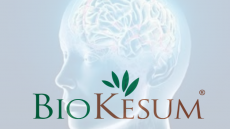Steroid-free asthma hope? Vitamin E holds anti-inflammation promise: Human Trial

Published in the Journal of Allergy and Clinical Immunology, researchers from the University of North Carolina assessed the impact γ-Tocopherol supplementation had on airway inflammation among mild asthma sufferers.
Specifically, they looked at whether supplementation reduced eosinophlic airway inflammation and could lower neutrophilic response to the inhaled lipopolysaccharide (LPS) challenge - used to test inflammatory response.
The double-blinded, placebo-controlled crossover study found that supplementation over 14 days “reduced inflammatory features of asthma”.
Better than steroids?
In particular, findings showed that among mild asthmatics it reduced sputum eosinophils and mucins – both markers of airway inflammation.
The researchers said these notable reductions when compared to the placebo effects were “similar to that of inhaled fluticasone propionate” – a typical corticosteroid used to treat asthma. However, they said larger clinical trials would be needed to assess the efficacy as a “complementary or steroid-sparing treatment for asthma”.
Findings also showed supplementation reduced the neutrophilic inflammatory response to the LPS challenge and might, therefore, “represent a useful therapy for neutrophil-predominant asthma exacerbation”, they said.
“…Neutrophilic airway inflammation is often less responsive to corticosteroid treatment, and there is a great unmet need for non-steroidal therapies that target this specific type of inflammation.”
Inspired by dietary vitamin E
The hypothesis that vitamin E supplementation might decrease airway inflammation in asthma and allergy airway diseases was “inspired by epidemiologic evidence suggesting that increased dietary vitamin E intake is associated with reduced incidence of allergic disease and asthma”, the researchers wrote.
However, previous intervention trials using the vitamin E isoform α-tocopherol had been “generally disappointing”, they said.
“Vitamin E has been studied for prevention and treatment of many chronic health conditions, yet human trials in asthma have yielded conflicting results and have focused on α-t, the most abundant tocopherol isoform in widely available supplements.”
This, they explained, prompted their focus on the alternative vitamin E isoform γ-Tocopherol: “γ-T has not been as vigorously studied for airway disease”.
“Overall, our results with two weeks of γ-T supplementation were similar to the effects of two weeks of treatment with inhaled fluticasone propionate on both post-treatment sputum eosinophilia and acute neutrophilic response to inhaled LPS challenge.
“Taken together, these observations indicate that γ-T has potential to treat multiple features of asthma, including airway inflammation, mucous production, and clearance of mucous from the airways, and should be studied further in larger-scale clinical trials to investigate the efficacy of γ-T for improving asthma outcomes.”
Trial details and possible limitations
The study involved 15 participants, aged 18 to 50 years, with physician-diagnosed mild asthma or a history of episodic wheezing or shortness of breath consistent with asthma. This selection, they said, followed on from earlier preclinical and early phase clinical trials using rodents and healthy adults.
Subjects were randomized to either γ-Tocopherol supplements or the placebo safflower oil. The γ-T supplement contained 612 mg γ-Tocopherol, 7 mg α-tocopherol, 28 mg β-tocopherol, and 8 mg δ-tocopherol in the form of a geltab and subjects were asked to take two geltabs once daily with a meal to maximize bile secretion and enhance absorption.
Participants conducted two weeks of each treatment with a three-week washout in between. The inhaled LPS challenge was conducted on the last day of each intervention and mucociliary clearance was measured 24-48 hours prior and four hours after. Sputum induction (an airway sampling procedure) was conducted six and 24 hours post-challenge.
The researchers acknowledged a handful of limitations with the early phase clinical trial; including the participants were predominantly female and some experienced mild transient gastrointestinal symptoms during the intervention.
For future research, one finding in particular would have to be carefully considered, they said.
With γ-Tocopherol supplementation, findings showed serum levels of vitamin E’s other isoform α-Tocopherol were actually reduced.
“The longer-term effect of reduced serum α-T levels noted with γ-T supplementation will have to be further studied for safety and efficacy in treating chronic airway inflammation.”
Source: Journal of Allergy and Clinical Immunology
Published online: July 20, 2017. Doi: 10.1016/j.jaci.2017.06.029
“Gamma tocohperol-enriched supplement reduces sputum eosinophilia and endotoxin-induced sputum neutrophil in volunteers with asthma”
Authors: AJ. Burbank et al.

















